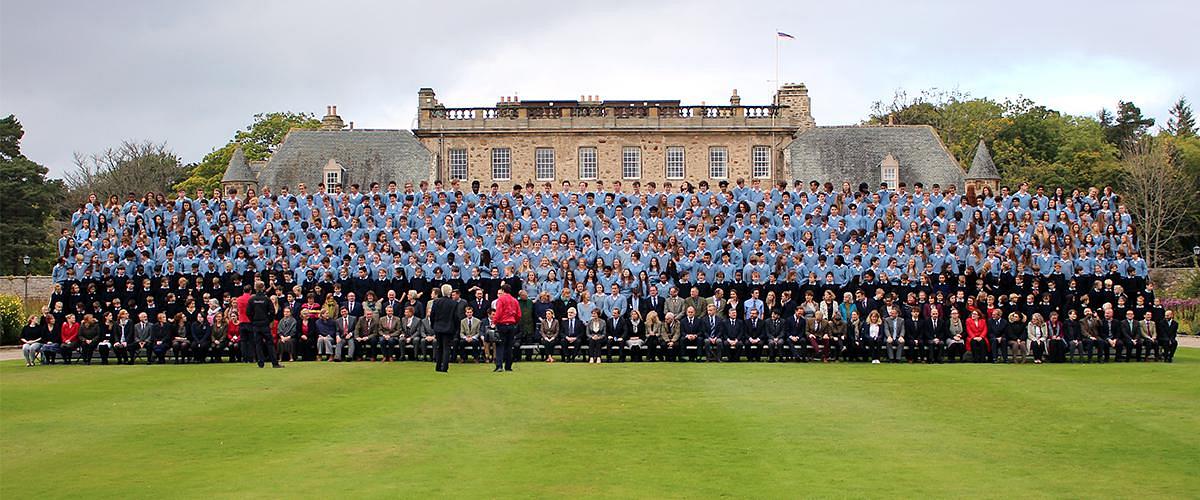The challenges facing independent education
The challenges facing independent education
by Lisa Kerr, Principal.

Challenge; it’s one of the four pillars of Gordonstoun, arguably the most important of the lot, and at the heart of every experience we offer to our students. Whether in the classroom, on the mountain, the stage, the sports field or the sea, every day we ask them to face difficulty, uncertainty and sometimes even fear. Sometimes they succeed and sometimes they don’t, but they are always stronger for the experience, more ready to face the next challenge, and more sure that, even if they have failed, they are not a failure.

An education founded on challenge is more relevant today than it has ever been. The future which today’s young people face will be difficult, uncertain and yes, at times, frightening. From climate change to artificial intelligence, antibiotic immunity to the rise in authoritarianism, the world will need citizens who are resilient and resourceful.
Working in an independent boarding school today has its own share of challenges. I can readily summon up concerns about affordability issues of fees, increased regulation, the reputational impact and need to support survivors of historic abuse, or threats to charitable status which could undermine the important work we do to increase access and support our local communities. Our organisational response to those management challenges will be vital, but so will our educational response to an increasingly dangerous societal challenge –the rise of binary politics.
Some parts of the world have many more years’ experience of this, not least the USA with its entrenched two party political system. But here in the UK, the growing tendency to encourage us to adopt one of two positions in a debate is a relatively new phenomenon. In Scotland you are either a ‘yes’ or a ‘no’; in the UK, either a ‘leave’ or a ‘remain’. Around the world we set one religion against another and we are asked to choose between looking after our planet and growing our economies. Insults are slung across a non-existent fence determinedly built down the middle of society by our leaders in their clamour for the power which they believe will only be shored up by the certainty of being right (whatever that means). It is a kind of ‘with me or against me’ approach that can divide families and friendships.
Of course, this approach has great appeal for those who inform and entertain us: a political boxing match makes for a more entertaining watch than a rational debate, and with website effectiveness measured by click-through, it is little wonder that salacious headlines are effective at driving engagement from both sides of a polarised debate. But fundamentally, this approach ignores the complexities of being human and, as educators, we have a responsibility to ensure young people know that this approach is not how best to serve their fellow citizens, nor indeed to attain personal happiness and fulfilment.
We give students at Gordonstoun an important head start by thrusting them into a community of over forty nationalities, from a wide range of social and cultural backgrounds. They live and learn alongside people who are fundamentally different from them, and together they face a broad range of challenges on a daily basis. Here they learn that there are as many perspectives and experiences are there are students and that they do not simply sit on one side of a debate or the other. It is a formula which has been tested over more than eighty years and which, from the testimonials of OGs, works.
Our school community, built around a full boarding approach, also helps to build an ethos of tolerance and understanding. In our classrooms we go beyond exam preparation and ensure we show young people that things are almost always much more nuanced than a black or white choice, or the adoption of a black or white stance. In daily chapel we encourage students to listen to a wide range of speakers from within our community and the wider world, either presenting a simple exposition of something which matters to them or exploring complex contemporary issues.
So in everything we do, we must develop in our young people not just resilience and resourcefulness, but also tolerance and compassion, and we must help them know that life is more challenging than the apparently simple choice between left and right. Instead, it is about knowing that, whichever path they take, it is who they are and how they approach things that will help them to navigate the beautiful complexity of life, of relationships and of our world.